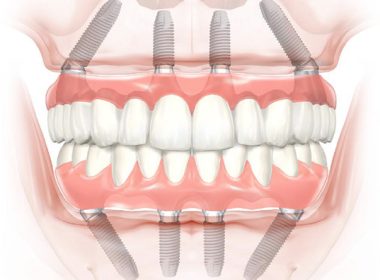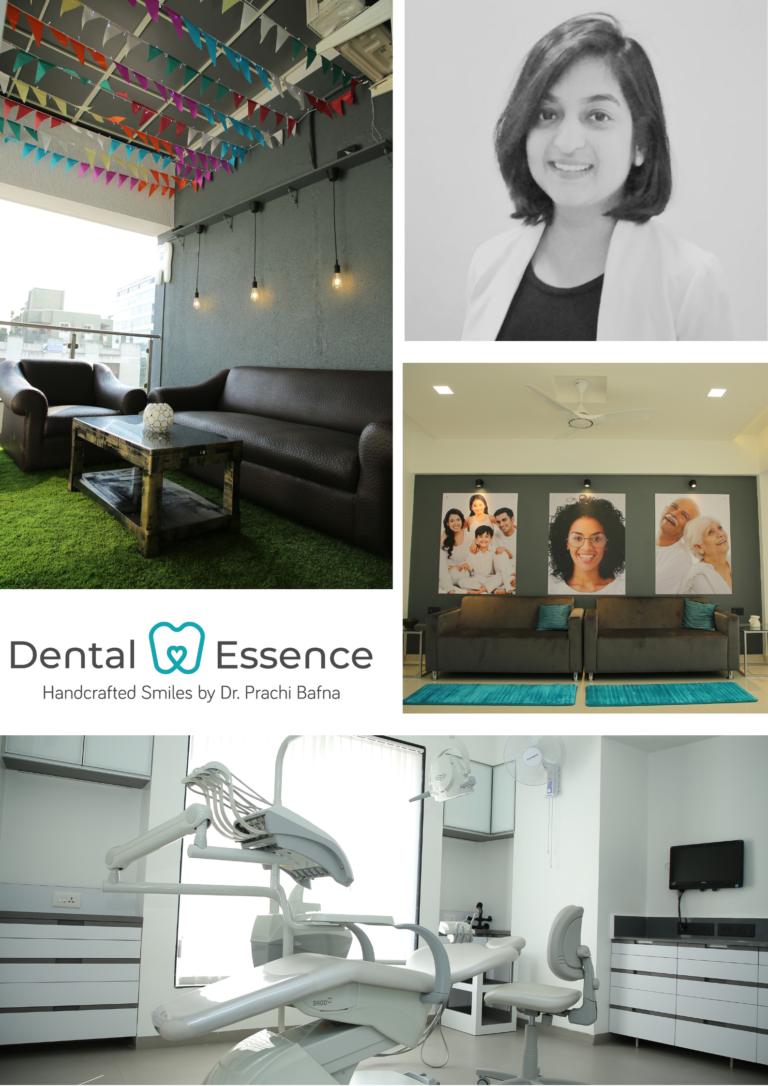

All on 4 or Fast and Fix gives you freedom from loose fitting dentures. For ages people with no teeth have been struggling with the woes that a traditional denture carries. Now dentures can be fixed to the jaw with implants and can give you 80% chewing efficiency compared to 20% of a normal denture.
1. Edentulism in India
Edentulism is loss of teeth which can affect your ability to eat and speak clearly. Dentists use the term “edentulism” to describe total tooth loss and “partial edentulism” to describe the loss of one or more teeth.
Due to its high prevalence and its effect on general health, edentulism qualifies itself as a public health problem. The high prevalence of edentulism in India (15.3 %) is consistent with other findings.
The high prevalence of edentulism in India (15.3 %) is consistent with other findings. The World Health Organization [Joint WHO/FAO Expert Consultation on Diet, Nutrition and the Prevention of Chronic Diseases (2002: Geneva, Switzerland) Diet, nutrition and the prevention of chronic diseases: report of a joint WHO/FAO expert consultation, Geneva, 28 Jan -1 Feb 2002. (WHO technical report series; 916) 160 pages.] estimated the prevalence of edentulism among 65–74 year olds in India at 19 %.
Tooth loss remains a significant deterrent to oral health and adversely affects the dietary intake and nutritional status of individuals compromising their general health. It is a debilitating and irreversible condition and is considered as the “final marker of disease burden for oral health.” In adults, the number of tooth loss can be viewed as an index of lifetime accumulation of poor oral health which mainly stems from untreated dental caries and periodontal disease.
Edentulism has a significant effect on quality of life outlined by the contribution of more than a third to oral disorder disability burden globally. While edentulism primarily affects normal day to day functions such as mastication and speech, it eventually leads to systemic effects such as nutrition, diabetes, and cardiovascular complications. Edentulism can be broadly divided into partial and complete edentulism. It represents a state of disability that the person carries for life unless prosthetically rehabilitated.
2. Problems with loose Denture

Dentures have helped generations of patients to rebuild lost smiles. When they fit well, they can enable you to eat most foods, they look fantastic, and they are relatively comfortable. Unfortunately, their fit tends to become worse over time due to changes in the jaw’s structure. It is important that you regularly visit your dentist so they can reline (adjust) your prosthetic.
Otherwise, you will be at risk of suffering from the following health problems that can be caused by ill-fitting dentures.
Malnutrition
It is a major problem faced by elderly people whose bite force is reduced by 75% in the first 5 years of wearing dentures and a shocking 97% after 15 years. One of the major problems faced by elderly denture-wearers is malnutrition, which is in turn caused by replacement teeth that are uncomfortable to eat with. More than half of patients who wear removable dentures say it’s actually easier and more comfortable to eat without them.”
But this takes a considerable toll on the diet of elderly denture-wearers. Without teeth, there is a severely limited variety of foods they can manage and certainly not the variety they need in order to get all of their essential daily requirements. Issues of nutritional intake are further compounded by the deleterious effect dentures have on jaw bone health.
Pain
Ill-fitting dentures can rub against the gums, causing painful irritation and inflammation. They can also put a strain on your jaw and facial muscles when you are eating and speaking, an issue that can exacerbate or even cause TMJ dysfunction.
Blister Development
As the dentures rub against the gums, blisters (also called denture sores) can quickly develop. In addition to afflicting the gums, the blisters may also occur on the roof of the mouth.
Infections
A common issue with poorly fitting dentures is fungal infections. Poorly fitting dentures can harbor fungi and if this is combined with trauma from the denture rubbing, it is likely to cause a condition known as ‘denture stomatitis.’
Headaches and Earaches
The muscle tension caused by poorly fitting dentures can lead to painful headaches. Your ears may start to hurt as well because the jaw joint (TMJ) is very close to your ears, and when it is strained, the pain can easily radiate to nearby areas of the head.
Eating and Speaking Difficulties
Dentures that fit properly can handle a wide variety of foods. When their fit changes, however, it may become more and more difficult to chew on nutritious items like fruits, vegetables, nuts, meat and seeds.
Additionally, clear speech depends on complex interactions between the tongue, teeth, and other structures. If your dentures tend to slip and slide around your mouth, you may find it difficult to articulate certain sounds.
Bad Odor in the Mouth
Poorly fitting dentures will often have a small gap between the gums and the dentures, which leads to food being trapped between the two. This results in bad odor in the mouth.
Bone Shrinkage
Unfortunately, uneven, badly fitting dentures can cause trauma to the underlying bone which can lead to bone shrinkage. The more the bone shrinks, the worse dentures become (even if new ones are made). If left for a long time, there can be substantial shrinkage, which leads to a very poor outcome even if new dentures are made. This can also make it difficult to place implants due to the lack of bone, meaning extra procedures are needed to build it up before placement.
3. Solution
All-on-4 Implant Technology (A US FDA approved treatment) by Nobel Biocare
All-on-4 is a revolutionary approach developed over a decade ago, which allows the rehabilitation of totally edentulous patients with the placement of only 4 titanium implants in each jaw, through a quick and minimally invasive procedure. The Implants act as a foundation for the Bridge, which allows the placement of a fixed set of teeth, in all similar to natural teeth. This technique stabilizes bone levels, keeping the jaws healthy. By tilting 45° the two posterior implants, the All-on-4 allows even those patients with virtually no bone to have fixed teeth without need of bone transplant. The result is a fixed (non-removable) natural looking dentition, indistinguishable from natural teeth.
The All-on-4 clinical solution has been developed to maximize the use of available bone and to allow for Immediate Function.
Procedure

All-on-4 implants

All-on-4 implants with Fixed Prosthesis
How Are All-on-4 Dental Implants Different From Dentures?
- They are permanent teeth that are brushed and cleaned like natural teeth.
- Do not have to be taken out.
- Do not need adhesives.
- Are comfortable because they do not press down on your gums.
- Allow you to experience the hot and cold of your food, as well as the taste.
- Allow you to bite with increased force (up to 70% more), so you can eat all of your favorite foods again.
- Prevent bone deterioration.
- Restore your facial features.
Benefits of All-on-4 Implant
- Stability Even In
Minimum Bone Volume: By tilting the two posterior implants, longer
implants can be used in minimum bone volume, increasing bone-to-implant
contact and reducing the need for vertical bone augmentation. The tilted
posterior implants can be anchored in better quality anterior bone,
reducing cantilevers and thus improving support of the prosthesis. - Good clinical
results: Biomechanical measurements show that tilted implants, when part
of prosthetic support, do not have a negative effect on the load
distribution. The tilting of implants has been used in clinical practice
for over 2 decades and has shown good results. - Increased efficiency: Efficient treatment flow results in shorter treatment times and improved patient satisfaction.

Dr. Prachi Bafna

Your First Visit
*Full exam, cleaning, and x-rays
*Time to meet your dentist and ask questions
*Custom treatment plan designed just for you
*Discussion of finances and insurance options
See us once and you’ll become a patient for life. There’s no other dentist in Pune quite like us. At your first appointment, expect to spend about 90 minutes with us for examination & get-to-know-you time with your dentist.
ON TIME
We know how busy your schedule is, so your appointment will always start on time with no waiting. We work on appointment basis.
HASSLE-FREE
The entire process from scheduling your appointment to billing is hassle-free. All modes of payment are available.
HI-TECH
You may not get as excited as we do about our machines, but you’ll smile when you see how great you look and feel.


dr.bafnaprachi@gmail.com
PHONE NUMBER
9588695155
020-27293429
timings
Mon-Sat: 10am-9pm
Sun: By Appointment`
ADDRESS
203, Fortune House,
Baner-Pashan Link Road
Pune-411021
